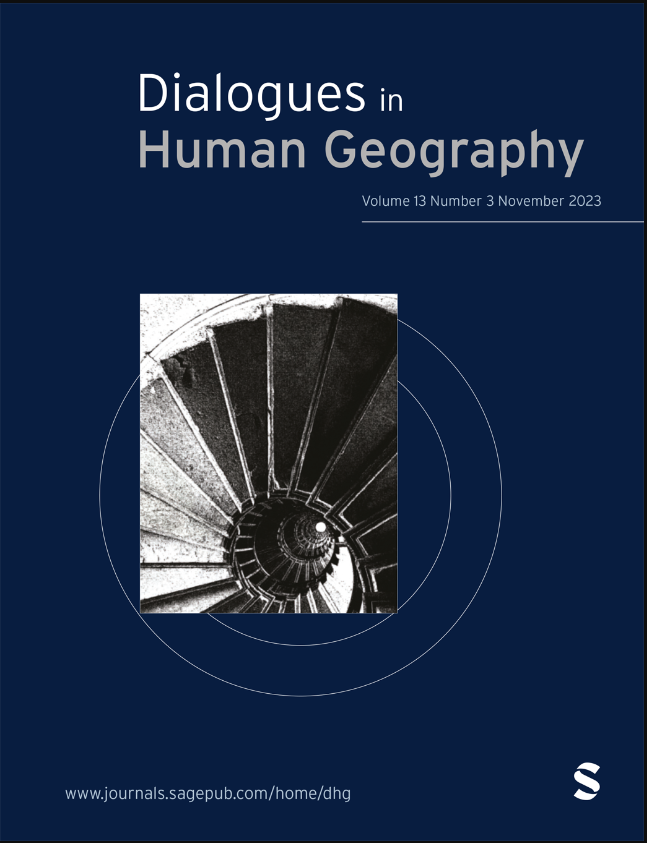非正规性的殖民化和种族化
IF 8.2
1区 社会学
Q1 GEOGRAPHY
引用次数: 0
摘要
本文受 Finn 的著作启发,该著作对非洲形式-非正式辩证法的结构进行了历史梳理,认为其起源可以追溯到殖民时代。我从非洲社会空间政策的殖民性中嵌入的正式-非正式二元对立种族化这一棱镜来扩展芬恩的论点。我从非洲城市,特别是拉各斯汲取见解,认为正规-非正规二元结构一直是殖民统治的工具,在当代(重新)产生并维持着种族等级制度和种族化的流离失所现象。这为理解和质疑非正规性相对于正规性的等级定位提供了一个有用的框架。本文章由计算机程序翻译,如有差异,请以英文原文为准。
Coloniality and racialization of informality
This article is inspired by Finn's work which historizes the structure of formal–informal dialectic in Africa, arguing that the origin dates to the colonial era. I extend Finn's argument through the prism of formal–informal as a racialized binary embedded in the coloniality of Africa's socio-spatial policies. Drawing insights from African cities generally and Lagos in particular, I argue that the formal–informal binary has always been a tool of colonial domination, which (re)produces and maintains racial hierarchies and racialized displacement in contemporary times. This provides a useful frame to understand and challenge the hierarchical positioning of informality relative to formality.
求助全文
通过发布文献求助,成功后即可免费获取论文全文。
去求助
来源期刊

Dialogues in Human Geography
GEOGRAPHY-
CiteScore
8.00
自引率
4.00%
发文量
86
期刊介绍:
Dialogues in Human Geography aims to foster open and critical debate on the philosophical, methodological, and pedagogical underpinnings of geographic thought and practice. The journal publishes articles, accompanied by responses, that critique current thinking and practice while charting future directions for geographic thought, empirical research, and pedagogy. Dialogues is theoretically oriented, forward-looking, and seeks to publish original and innovative work that expands the boundaries of geographical theory, practice, and pedagogy through a unique format of open peer commentary. This format encourages engaged dialogue. The journal's scope encompasses the broader agenda of human geography within the context of social sciences, humanities, and environmental sciences, as well as specific ideas, debates, and practices within disciplinary subfields. It is relevant and useful to those interested in all aspects of the discipline.
 求助内容:
求助内容: 应助结果提醒方式:
应助结果提醒方式:


